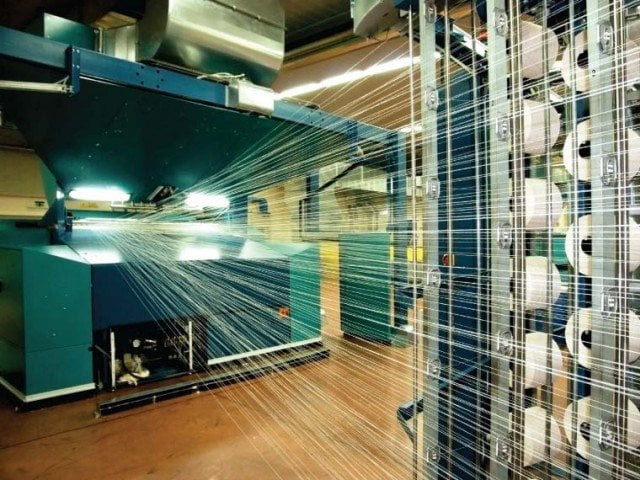Chinese textile units interested in relocating to Pakistan
APTMA encourages Chinese investors to take advantage of liberal policies

APTMA encourages Chinese investors to take advantage of liberal policies. PHOTO: EXPRESS
“As the world economy is developing in the face of new challenges and choices, the company strives to develop import and export trade through the adjustment of industrial structure,” he said.
A tale of two textile cities — one in China and one in Pakista
“Their aim is multidisciplinary, multiple-format, diversified development of modern textile enterprises in the future.”
Chen, while heading a delegation of the association, made the remarks during a meeting with members of the All Pakistan Textile Mills Association (Aptma) on Friday. Tianjin is a major port city located in northeastern China.
Aptma Senior Vice Chairman Zahid Mazhar invited Chinese investors to take advantage of the liberal trade and investment policies in Pakistan by entering into joint ventures with Pakistani entrepreneurs in the textile industry. He welcomed Chinese interest in relocating the industry to Pakistan.
Highlighting the trade and investment policies, Mazhar said the government was an advocate of open and deregulated market-driven economy and was creating an enabling environment by investing heavily in infrastructure and capacity building with special emphasis on attracting foreign investment and duty-free import of machinery, equipment and raw material.
Briefing on the environment for foreign investment, he said the government had allowed foreign direct investment in all sectors, treated local and foreign investment equally, permitted 100% foreign equity investment, required no government sanction and allowed remittance of royalty, technical and franchise fee, capital, profits and dividends.
Mazhar pointed out that the cost of doing business in Pakistan was lower compared to China, calling it one of the biggest advantages for the Chinese which encouraged them to invest in the textile sector of Pakistan.
Despite govt support, Pakistan's textile industry lags behind
He stressed that the recently announced export-led growth package including zero-rated sales tax for the textile industry, drawback of local taxes and levies at 4% on yarn and grey fabric, 5% on processed fabric, 6% on textile made-ups and 7% on textile garments against the realisation of export proceeds provided an added advantage for investment in Pakistan.
The meeting was also attended by former Aptma chairman Muhammad Yasin Siddik, Naveed Ahmed, Saleem Shakoor, Nadeem Elahi Sheikh and others.
Published in The Express Tribune, April 15th, 2017.
Like Business on Facebook, follow @TribuneBiz on Twitter to stay informed and join in the conversation.



















COMMENTS
Comments are moderated and generally will be posted if they are on-topic and not abusive.
For more information, please see our Comments FAQ